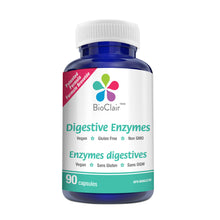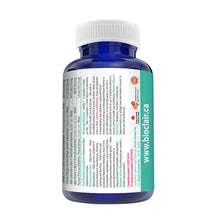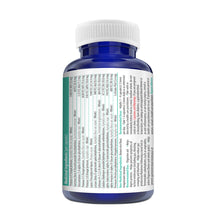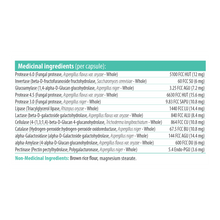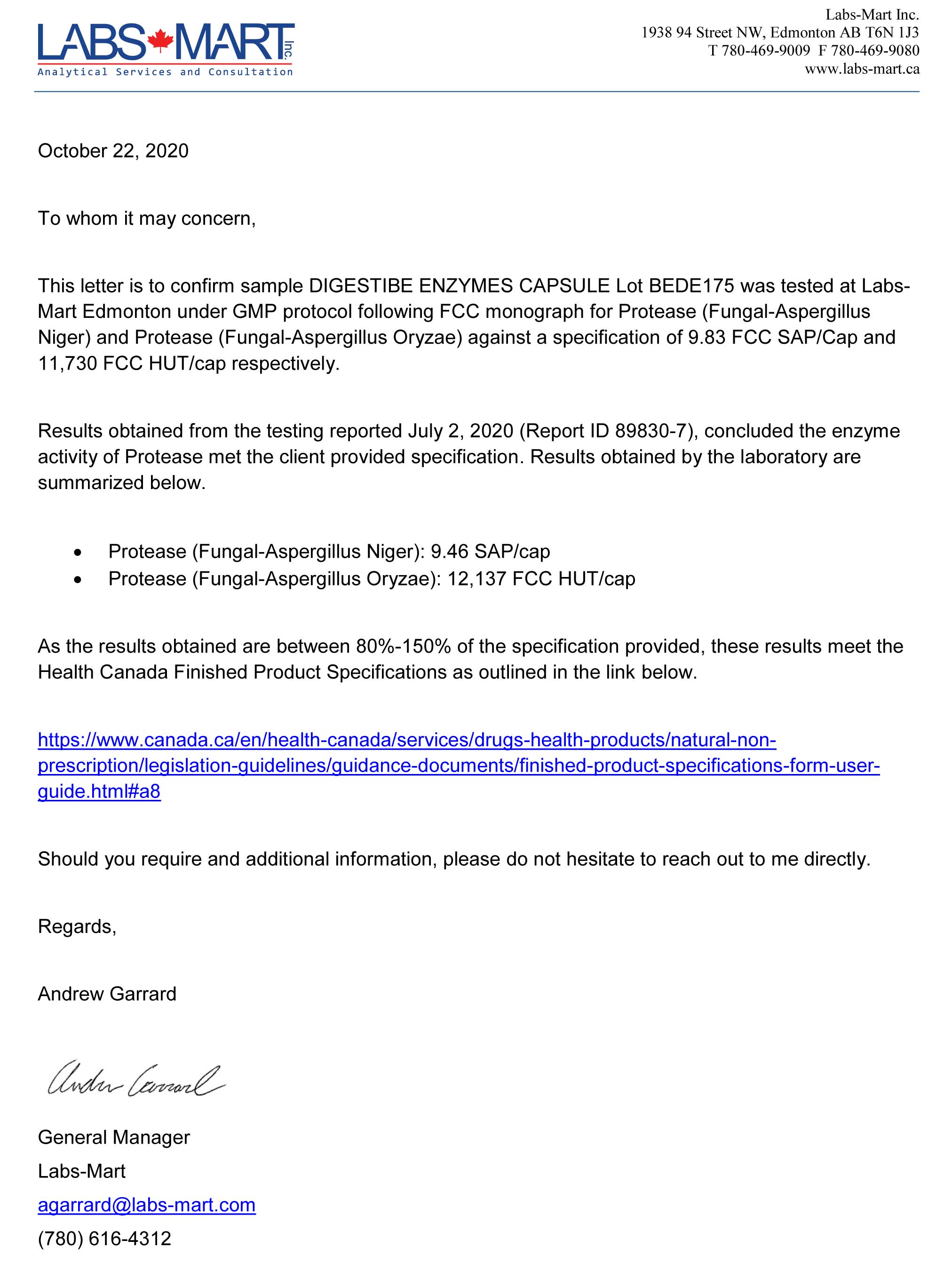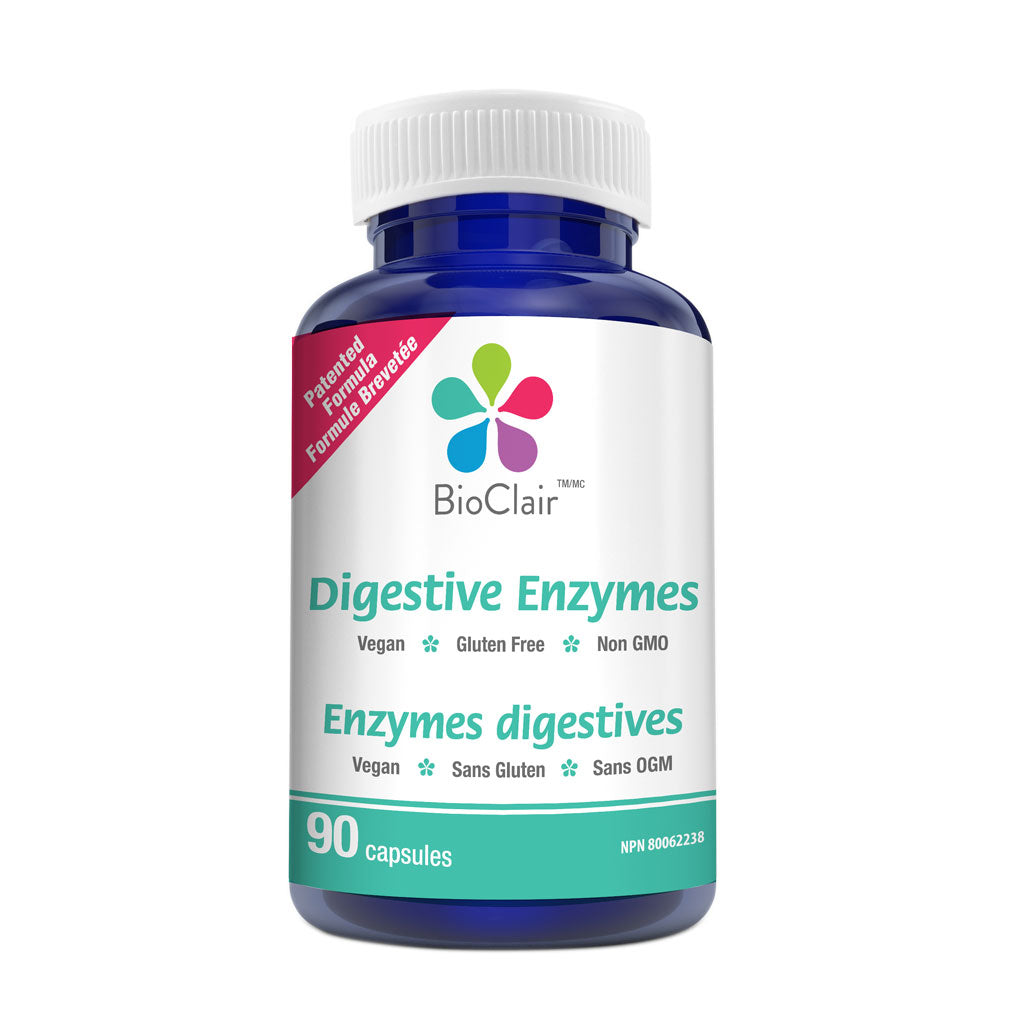
Health Canada allows us to state the recommended uses of BioClair Digestive Enzymes as follows:
- Source of digestive enzymes
- Digestive aid
- Helps digest proteins
- Helps prevent symptoms of lactose intolerance (including gas, bloating, cramping and diarrhea)
- Helps reduce gas production/flatulence following a meal rich in fermentable carbohydrates (such as vegetables, pulses/legumes/beans and whole grains)
- Helps prevent gastrointestinal intolerance of oligosaccharides/fermentable carbohydrates
- Adults: 1 - 4 Capsule(s) 3 time(s) per day
- Take 1-4 capsules 3 times daily or as otherwise directed by a health care practitioner. Take with or immediately before food or a meal. Swallow whole, do not crush or chew.
For prolonged use, consult a health care practitioner.
Cautions and Warnings:
If you are pregnant or breastfeeding, have diabetes, a gastrointestinal lesion/ulcer, are taking an anticoagulant/blood thinner or an anti-inflammatory, or are having surgery, consult a health care practitioner prior to use. If symptoms persist or worsen, consult a health care practitioner.
Known Adverse Reactions: Headaches, heartburn, bloating and hypersensitivity (e.g. allergy) have been known to occur; in which case, discontinue use.
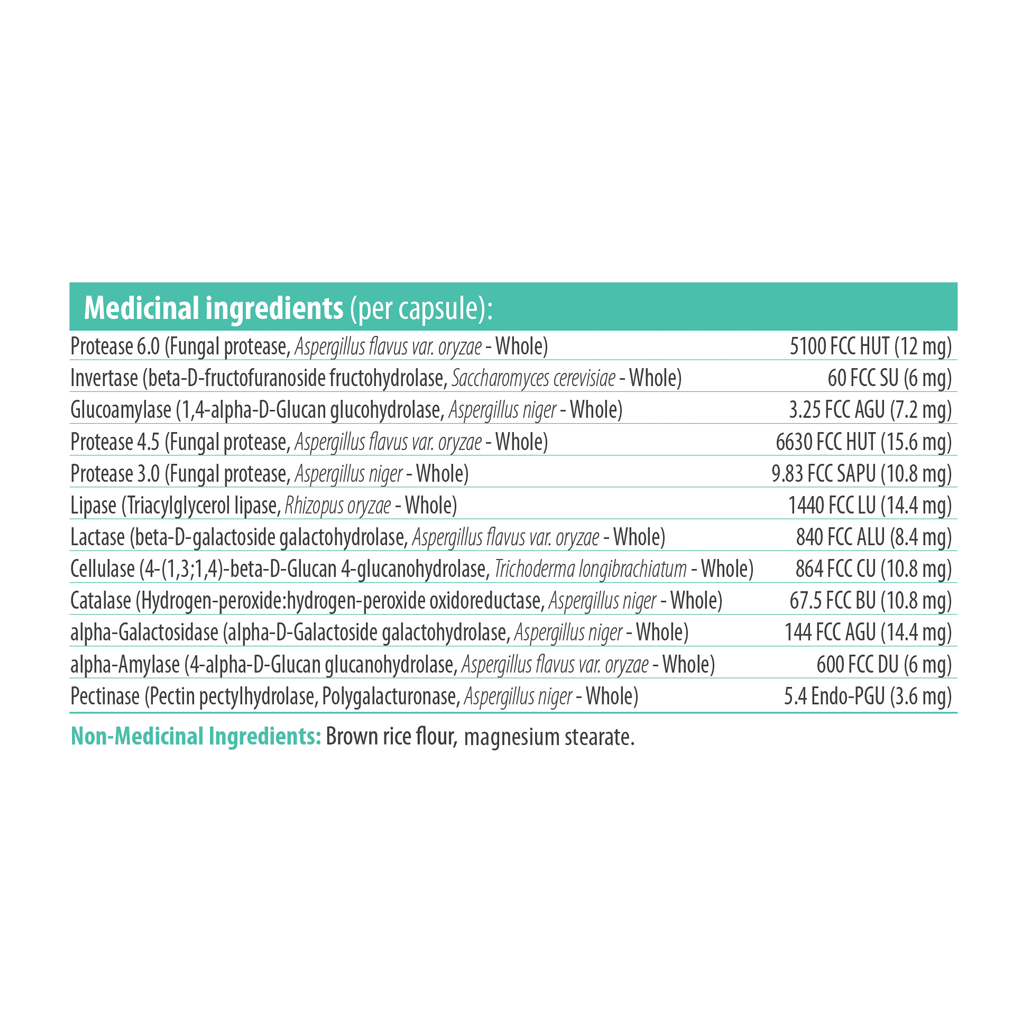
ENZYME INGREDIENT GLOSSARY
Protease 6.0 – Assists endogenous enzymes in metabolizing most soluble proteins at the end of a protein chain to produce amino acids and within the protein chain to produce peptides through all portions of the digestive tract, as well as significantly breaking down of starches in simple sugars.
Invertase – Assists in breaking down sucrose into its components D-fructose and D-glucose.
Glucoamylase – Assists in breaking down various types of dietary starches.
Protease 4.5 – Assists endogenous enzymes in breaking down most soluble protein molecules both at the end of chains and internally to create peptides and amino acids respectively. This enzyme works through the stomach and pyloric regions of the small intestine and is also helpful in breaking down starch.
Protease 3.0 – Assists endogenous enzymes in breaking down most soluble protein molecules at the ends to release amino acid and internally to create peptide chains, specifically under acid conditions.
Lipase – Assists in breaking down fats and oils of vegetable and animal origins.
Lactase – Assists any lactase the body produces in breaking down lactose, the sugar found in milk and dairy products to ease gastric distress associated with lactose intolerance.
Cellulase – Assists in breaking down cellulose, an insoluble structural component of the primary cell wall of green plants.
Catalase – Assists endogenous catalase in preventing the oxidative effects of hydrogen peroxide.
Alpha-galactosidase – Assists in the breakdown of certain vegetables (especially cruciferous vegetables) and legumes which may cause gastric discomfort or dietary intolerances for some individuals.
Alpha-amylase – Assists in breaking down starches, reducing viscosity of gelatinous starch, amylose and amylopectin solutions, yielding soluble dextrins as well as liberating glucose and maltose.
Pectinase – Assists in breaking down pectin, a source of soluble fibre found in fruits and vegetables.
SOURCE: www.enzymeeducationinstitute.com

